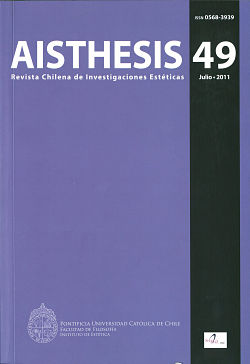New constructions and forms to dismantle memory in three documentaries of autobiographical Argentinean cinema Memoria familiar
Main Article Content
Abstract
This article aims to explore how the familiar and trans-generational memory have been constructed from the analysis of selected art objects: three Argentinean autobiographical documentaries from the past ten years, directed by children of the desaparecidos. The current development of the autobiographical phenomenon involves —in the works of our interest— new ways of thinking testimony (their own and the survivors’), which considers daily routines and familiar intimacy as privileged places in the reconstruction and reconfi guration of broken identities. Thus, multiple references to everyday places, and to familiar aspects emerge in the search of foothold —spaces, images, objects, and memories. However, there is also an accent in the process of constructing and dismantling subjectivities marked by violence and fi ssure most of the times.
Downloads
Article Details

This work is licensed under a Creative Commons Attribution-NonCommercial-ShareAlike 4.0 International License.
All contents of this electronic edition are distributed under the Creative Commons license of "Attribución-shareAlike 4.0 Internacional" (CC-BY-SA). Any total or partial reproduction of the material must mention its origin.
The rights of academic works published in this publication belong to their authors., who grant to AISTHESIS: Revista Chilena de Investigaciones Estéticas the license for its use. The management of the permits and the authorization of the publication of the images (or of any material) that contains copyright and its consequent rights of reproduction in this publication is the sole responsibility of the authors of the articles
